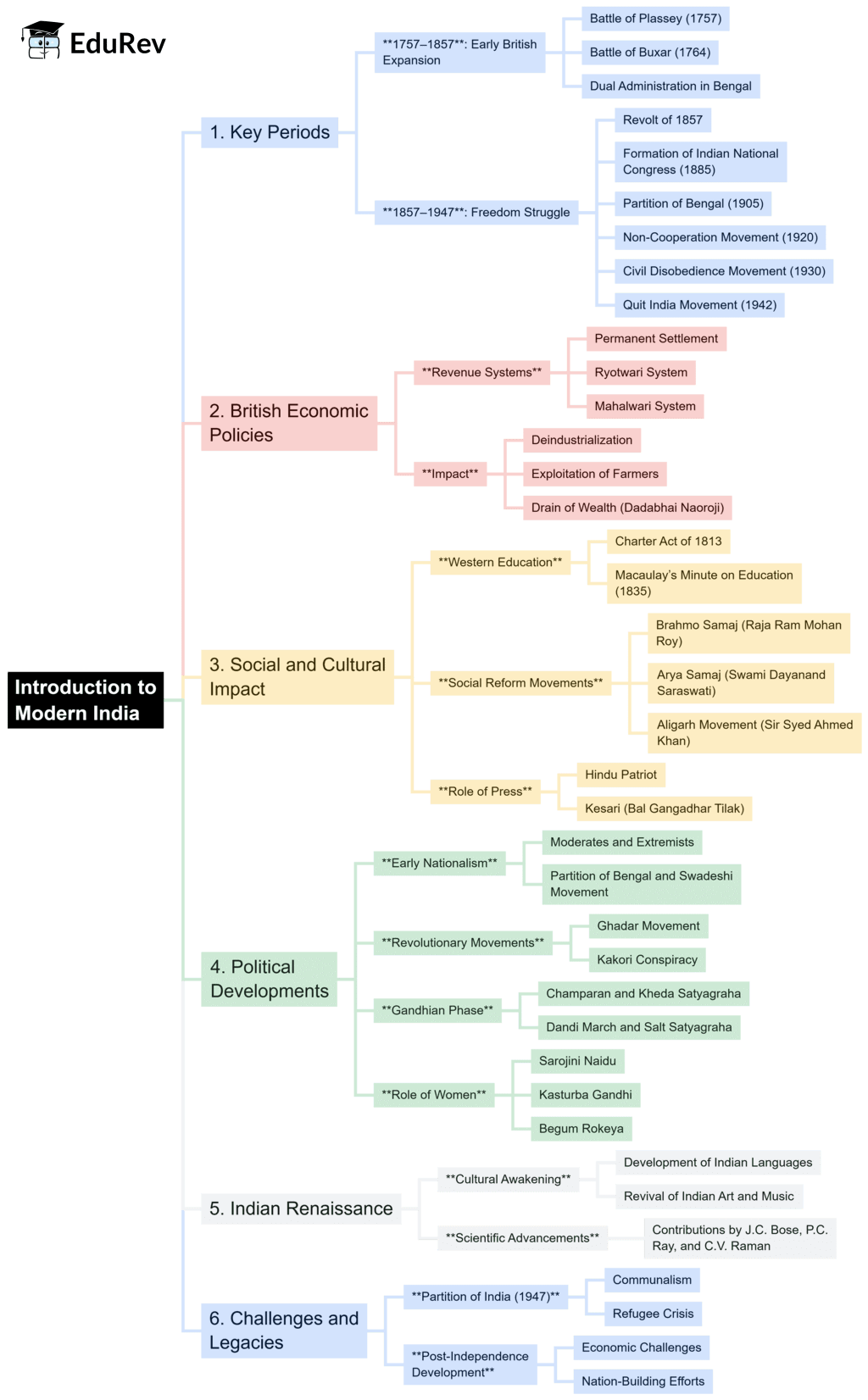UPSC Exam > UPSC Notes > History for UPSC CSE > Mind Map: Introduction to Modern India
Mind Map: Introduction to Modern India | History for UPSC CSE PDF Download

The document Mind Map: Introduction to Modern India | History for UPSC CSE is a part of the UPSC Course History for UPSC CSE.
All you need of UPSC at this link: UPSC
|
228 videos|855 docs|219 tests
|
FAQs on Mind Map: Introduction to Modern India - History for UPSC CSE
| 1. What are the major events that shaped the history of modern India? |  |
Ans. Major events that shaped the history of modern India include the British colonization starting in the 18th century, the First War of Independence in 1857, the Indian National Congress formation in 1885, the partition of India in 1947, and the subsequent establishment of a democratic government. Additionally, movements like the Non-Cooperation Movement, the Civil Disobedience Movement, and the Quit India Movement played crucial roles in India's struggle for independence.
| 2. How did the British colonial rule impact Indian society and economy? |  |
Ans. British colonial rule significantly impacted Indian society and economy by introducing new administrative systems, railways, and telecommunication, which modernized India to some extent. However, it also led to the exploitation of resources, deindustrialization, and the destruction of traditional industries. Socially, it introduced Western education and legal systems, but also created divisions through policies like 'divide and rule,' affecting communal harmony.
| 3. What role did Mahatma Gandhi play in India's freedom struggle? |  |
Ans. Mahatma Gandhi played a pivotal role in India's freedom struggle by advocating non-violent resistance and civil disobedience. His leadership in movements such as the Salt March and the Quit India Movement galvanized mass support against British rule. Gandhi's principles of Satyagraha and Ahimsa inspired millions and established a framework for peaceful protest, which became central to India's fight for independence.
| 4. What is the significance of the Indian Constitution in modern India? |  |
Ans. The Indian Constitution, adopted in 1950, is significant as it lays the foundation for India's democratic framework, ensuring fundamental rights and liberties for all citizens. It embodies the principles of justice, equality, and fraternity, catering to the diverse cultural fabric of the nation. The Constitution also established a parliamentary system, separating powers among the executive, legislature, and judiciary, thereby promoting a rule of law.
| 5. How has India's economic policy evolved since independence? |  |
Ans. Since independence, India's economic policy has evolved from a focus on self-sufficiency and import substitution in the early years to liberalization and globalization in the 1990s. Initially, the government adopted a mixed economy with significant state control over key industries. Reforms in 1991 opened up the economy to foreign investment and competition, leading to rapid economic growth, although challenges like poverty and inequality remain prominent.
Related Searches

















